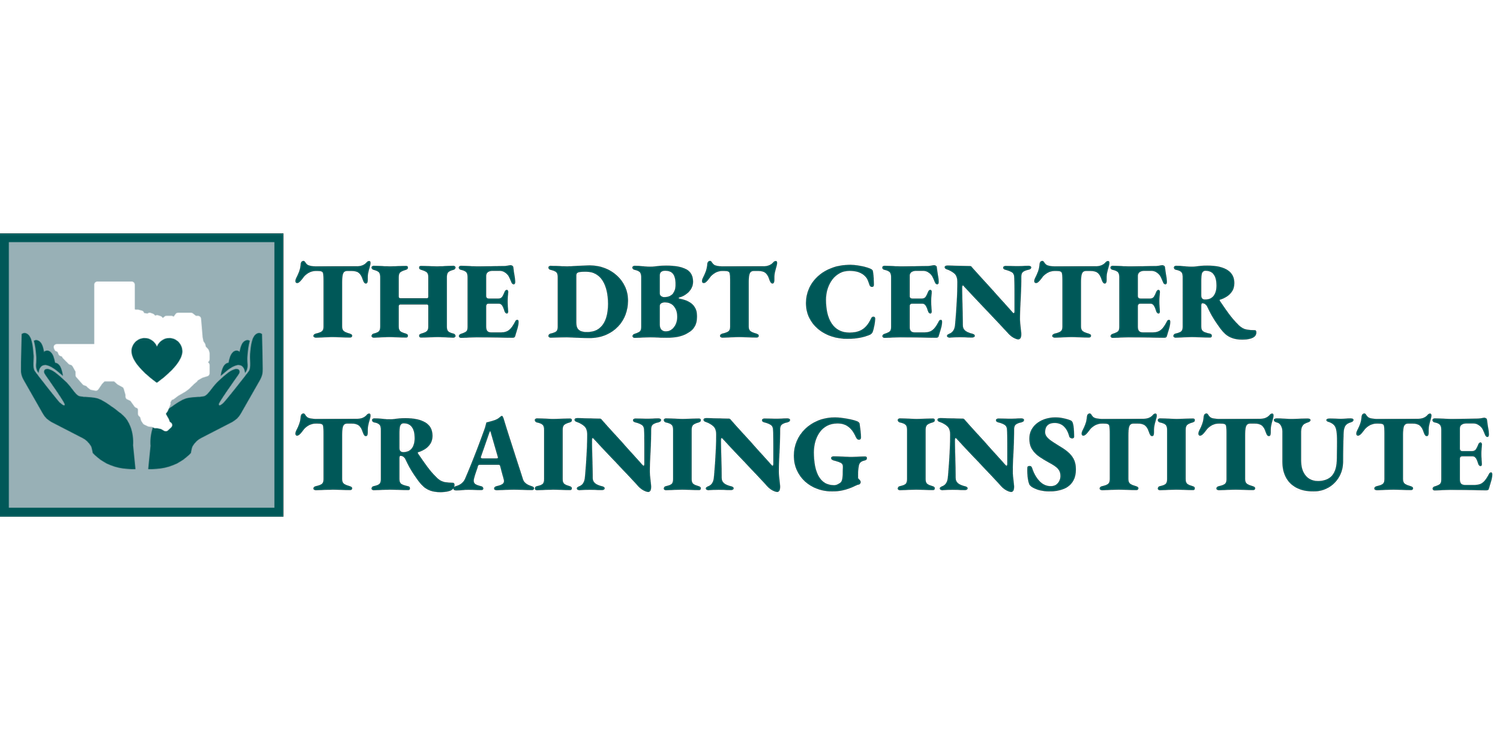
-
DBT stands for Dialectical Behavior Therapy. DBT is a comprehensive psychotherapy model that is evidence-based for the treatment of complex mood, emotional, behavioral, and personality disorders.
-
It was originally developed by Dr. Marsha Linehan, Ph.D, ABPP.
-
The Dialectical Behavior Therapies Center is a mental health group practice with a team of highly trained and caring professionals who are dedicated to excellence in the delivery of evidence-based treatments. Since 1989, we have been striving to help our clients build a life worth living and teaching skills to decrease suffering and cope more effectively with difficult emotions and situations. Our therapists are fully trained in Dialectical Behavior Therapy, and we offer other evidence-based treatments such as Radically Open DBT, Cognitive Behavior Therapy, trauma treatments, and Acceptance and Commitment Therapy. We offer services to ages five and above, including individual, family, and couples therapy, intensive outpatient programs for adults and adolescents, DBT skills groups for adults and adolescents, parent groups, multi-family skills groups, and substance abuse groups.
-
A nonprofit branch of the DBT Center focused on education, training and dissemination of Dialectical Behavior Therapy through high-quality, low-cost therapy services and community outreach.
-
DBT was originally developed for those suffering with Borderline Personality Disorder, suicidality and self-harm. Since DBT was implemented in clinical practice, it has become renowned worldwide for effectively treating personality disorders, clinical depression, bipolar, generalized anxiety, PTSD and other trauma related disorders, substance abuse and more. DBT is an evidence-based therapy that has proven its effectiveness through many trials in the past 30 plus years.
-
DBT involves much more than standard talk therapy or even Cognitive Behavior Therapy (CBT). It includes individual therapy using a structured approach to targeting life-threatening behaviors, therapy-interfering behaviors, and quality-of-life-interfering behaviors. Adherent DBT includes skills groups in Mindfulness, Distress Tolerance, Emotion Regulation, Dialectics, and Interpersonal Effectiveness. For children and adolescents, there are family skills groups and family therapy sessions. DBT therapists offer 24/7 skills coaching to clients to help generalize the skills into their lives. Adherent DBT also includes a weekly consultation team, which is considered “therapy for the therapists,” to ensure fidelity to the evidence-based model of treatment as well as reduce burnout.
-
The overall goal of DBT is to help patients create a “life worth living”. What makes a “life worth living” varies from patient to patient, however all patients have the goal of reducing problem behaviors, especially behaviors that could results in harm or death to themselves or others.
-
DBT is a merger of Cognitive Behavior Therapy (CBT), Acceptance, and Dialectics. CBT is a change-focused therapy that has four major strategies: Skills Training, Exposure Therapy, Cognitive Therapy and Contingency Management. CBT was effective in treating some mental health disorders but there seemed to be a missing component for those suffering with suicidality and self-harm, particularly. Acceptance, based on eastern philosophies, was added to the core basics of CBT to create a more empathetic and open form of treatment. Dialectics became an additional component after some trials, seeing how it was a natural fit with the dialectic of acceptance and change in the patient’s treatment. Dialectics is holding two opposing truths at the same time; for instance, a person is doing the best they can in that moment and they can do better.
-
Mindfulness, Emotion Regulation, Distress Tolerance, and Interpersonal Effectiveness are the modules of DBT. Dialectics and “Finding the middle path” are also woven throughout each module.
-
Mindfulness focuses on:
• Increasing awareness of internal and external experiences as they occur
• Learn how to non-judgementally and effectively observe, describe, and participate in events and experiences
• Increase ability to focus attention on one thing in the moment
• Learn to be in control of your mind rather than your mind being in control of you -
Interpersonal Effectiveness helps:
• Build and maintain relationships
• Learn to how to set limits and boundaries
• Effectively asking for what you want and/or need
• Prioritizing and organizing wants/needs
• Preserving self-respect -
Emotion Regulation concentrates on:
• Understanding your emotions and how they function
• Increasing awareness of emotional experiences
• Increasing control over difficult emotions
• Increasing positive experiences
• Decreasing emotional suffering
• Building mastery -
Distress Tolerance is comprised of:
• Learning how to effectively tolerate painful experiences
• Increasing awareness of how distress is represented in your life
• Learning how to decrease suffering through acceptance of reality
• Increasing willingness over willfulness

